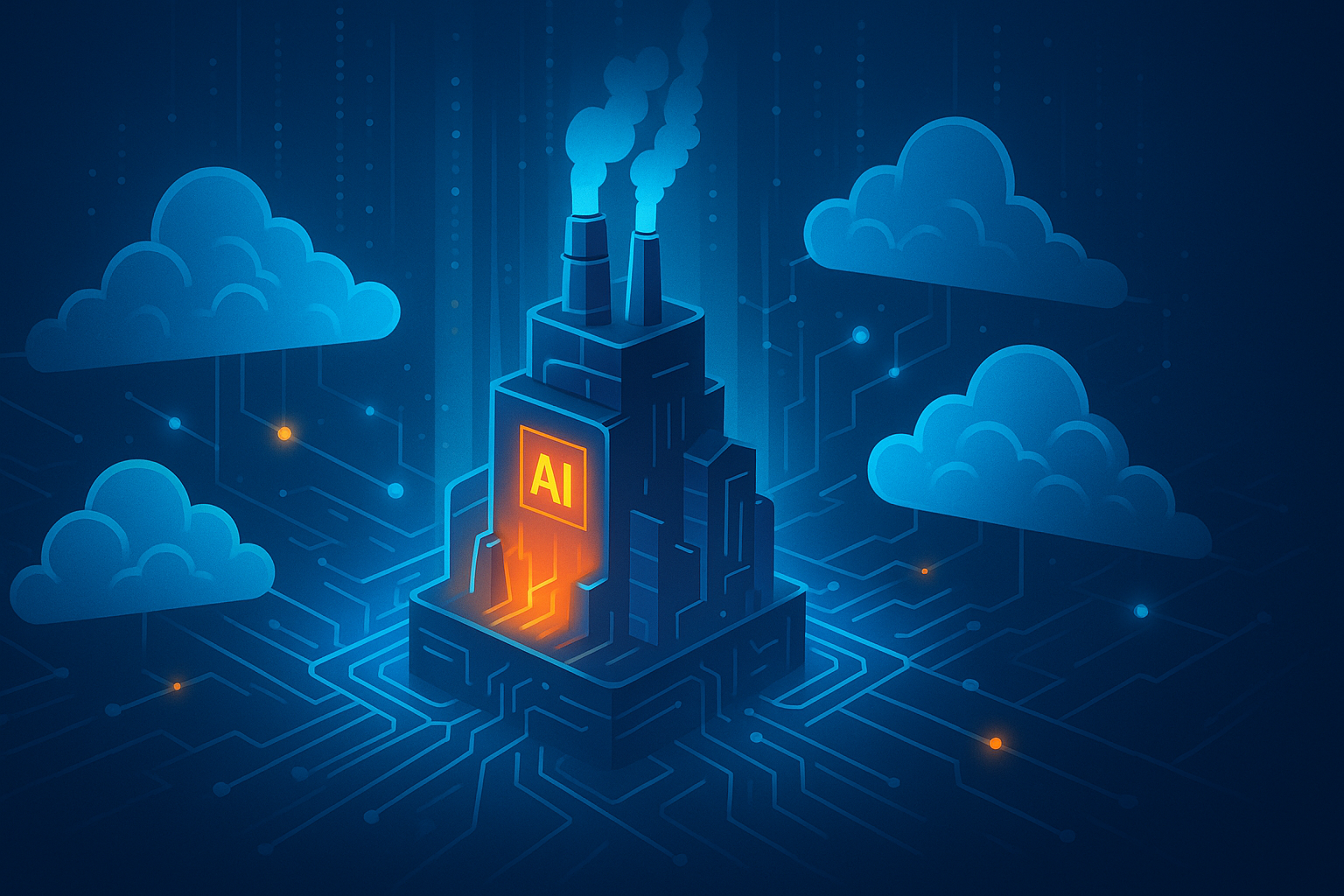Supercharging Business Applications: Integrating Microsoft AI with CloudServus
As businesses strive to stay competitive, leveraging artificial intelligence (AI) is no longer optional—it’s essential. For organizations already...
3 min read
Dave Rowe Oct 9, 2025 10:41:37 AM

At CloudServus, we’re hearing about Azure AI Foundry more and more in our conversations with CIOs, IT directors, and data leaders. As organizations accelerate their AI strategies, they’re looking for a way to build, manage, and scale intelligent agents safely within the Microsoft ecosystem — without losing control of governance, data, or costs.
Microsoft’s Azure AI Foundry is quickly becoming that solution. It’s an enterprise-grade platform designed to unify everything AI teams need: model management, orchestration, governance, observability, and deployment, all in one place.
In short, Foundry is where AI prototypes become production systems, helping organizations move from experimentation to real-world, compliant use cases with less friction and more control.
Azure AI Foundry is a Platform-as-a-Service (PaaS) environment that brings together Microsoft’s AI capabilities under one resource and governance model. It’s the foundation for building and running intelligent AI agents, connecting them to your data, tools, and systems securely and at scale.
Key capabilities include:
Think of it as an AI agent factory — a central hub where your organization can design, test, and manage intelligent systems with the security and compliance standards of Azure.
Microsoft continues to enhance Foundry with two major capabilities that are shaping the next generation of enterprise AI systems.
The Agent Framework merges Microsoft’s research projects like AutoGen and Semantic Kernel into a unified SDK and runtime for multi-agent systems.
This framework allows developers to:
The Model Context Protocol (MCP) is an open standard that lets AI agents call external APIs, functions, and data sources dynamically.
In practice, this means your AI systems can securely access real business data and tools without extensive custom integration — bridging AI with enterprise applications more seamlessly than ever before.
Together, these enhancements make Azure AI Foundry a true multi-agent platform, capable of running complex, interconnected AI systems built for real enterprise workflows.
Organizations adopting Azure AI Foundry are already seeing value in key areas:
For a deeper dive, Microsoft’s own overview — “Your AI app and agent factory” — offers insight into how Foundry is changing how enterprise AI is built and deployed
As with any powerful platform, there are important considerations when deploying AI Foundry:
These challenges highlight the need for structured guidance, governance frameworks, and continuous cost optimization — all areas where CloudServus provides value.
As a Top 1% Microsoft Solutions Partner and Azure Expert MSP, CloudServus helps organizations unlock the full potential of Microsoft’s AI ecosystem, including Azure AI Foundry.
Our team provides:
Whether you’re exploring your first AI agent or scaling a multi-agent network, CloudServus brings the technical expertise, licensing insight, and operational discipline to make your Azure AI strategy sustainable and secure. Schedule an AI Strategy Consultation with CloudServus

As businesses strive to stay competitive, leveraging artificial intelligence (AI) is no longer optional—it’s essential. For organizations already...
.png)
As 2025 approaches, the technological frontier continues to expand, and quantum computing stands at its edge. For IT leaders, Microsoft’s recent...
.png)
Cloud computing is evolving at a breakneck pace, and Microsoft Azure continues to shape the industry’s trajectory. With advances in AI, security, and...